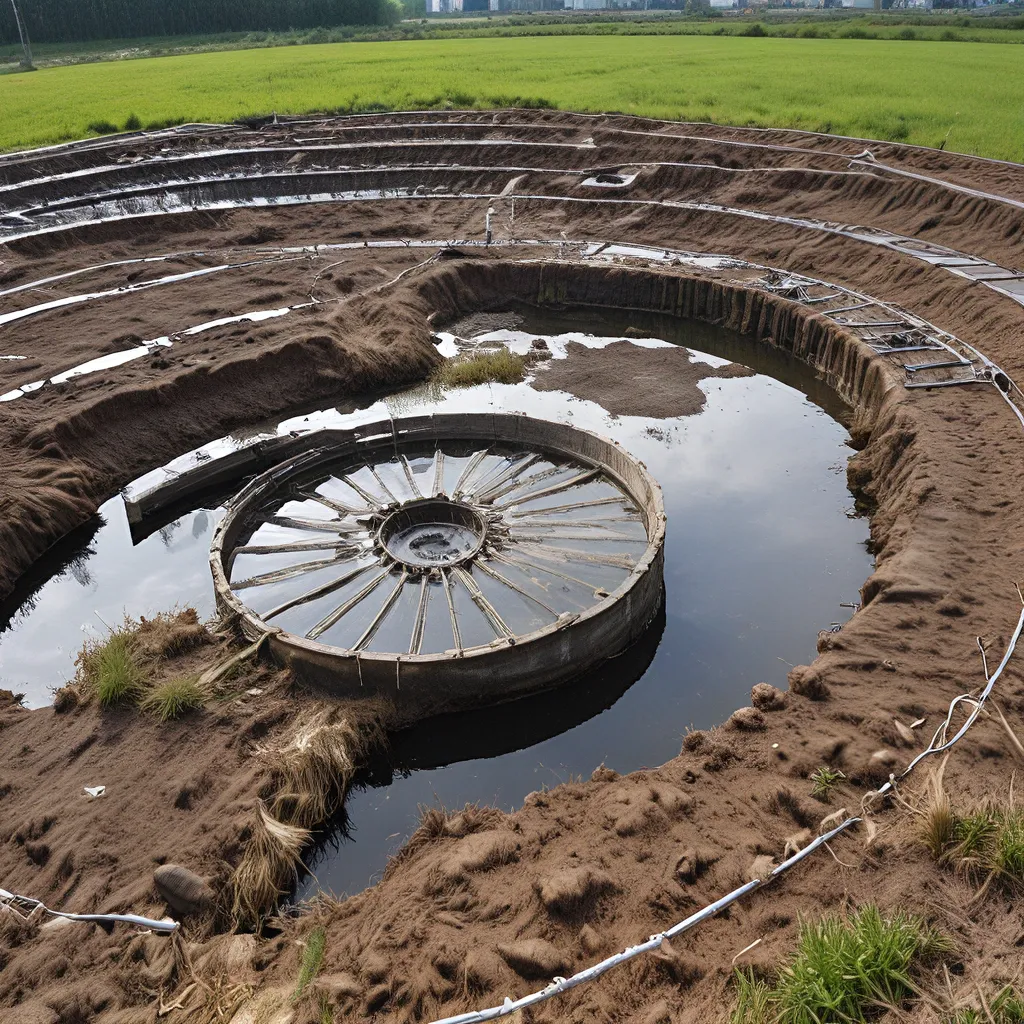
Have you ever wondered where all the water we use in our daily lives ends up? It’s a question that many of us take for granted, but the truth is, the journey of our wastewater is a fascinating and complex process that holds the key to a more sustainable future. As a self-proclaimed water enthusiast, I can’t wait to dive into this topic and share with you the incredible potential of wastewater treatment and its role in the emerging circular bioeconomy.
Wastewater Treatment: More Than Just Flushing Away Our Troubles
When we flush the toilet or drain the sink, we might assume that our wastewater simply disappears, never to be seen again. But in reality, that’s just the beginning of a remarkable journey. The wastewater treatment process is a carefully orchestrated dance, involving a wide array of technologies and microbial processes that work together to transform this used water into a valuable resource.
One of the most fascinating aspects of wastewater treatment is the role of microorganisms. These tiny, invisible allies are the real heroes of the process, quietly going about their business and doing the heavy lifting. Bacteria, fungi, and other microbes are responsible for breaking down the organic matter, removing contaminants, and even producing bioenergy and bioproducts that can be harnessed for further applications.
It’s like a well-oiled machine, with each component working in harmony to create something truly remarkable. And the best part? This process doesn’t just clean the water – it also creates valuable resources that can be used to power our homes, fuel our vehicles, and even produce the materials we use in our everyday lives.
The Circular Bioeconomy: Closing the Loop on Waste
As I mentioned, the wastewater treatment process doesn’t just clean the water; it also generates a wealth of bioproducts and bioenergy that can be repurposed and reused. This concept of a circular bioeconomy is at the heart of the sustainable future we’re striving for.
In a circular bioeconomy, we don’t see waste as something to be discarded, but rather as a valuable resource that can be transformed and reused. The wastewater treatment process plays a crucial role in this, as it essentially “upcycles” our used water into a wide range of useful products.
For example, the biogas generated during the treatment process can be used to power the treatment plant itself, or even be sold to the grid as a renewable energy source. The sludge that’s left behind can be processed into fertilizers or biofuels, reducing our reliance on fossil-based alternatives.
And that’s just the tip of the iceberg. Researchers are constantly exploring new and innovative ways to extract even more value from the wastewater stream, developing novel bioproducts like bioplastics, biofuels, and even biomedical compounds.
It’s a closed-loop system that mimics the natural cycles found in nature, where nothing is truly wasted, and everything is repurposed and reused. The circular bioeconomy is the future, and wastewater treatment is at the heart of it all.
Harnessing the Power of Microbial Processes
As I mentioned earlier, the microbial processes at work in wastewater treatment are truly remarkable. These tiny, unsung heroes are the real powerhouses behind the transformation of our used water into valuable resources.
Bacteria, for example, play a crucial role in breaking down the organic matter in the wastewater, converting it into methane-rich biogas that can be used to generate electricity or heat. But that’s not all – they also help to remove nitrogen and phosphorus from the water, preventing these nutrients from causing environmental harm when the treated water is discharged.
And then there are the fungi and other microbes that are responsible for producing a wide range of bioproducts, from bioplastics to enzymes and biochemicals. These microorganisms are true alchemists, transforming the waste into valuable commodities that can be used in a variety of industries.
It’s a fascinating process to behold, and one that is constantly evolving as researchers uncover new ways to harness the power of these microbial allies. From genetic engineering to the development of synthetic biology techniques, the possibilities are truly endless.
But perhaps the most exciting aspect of all this is the potential for innovation. As we continue to explore the microbial world and its role in wastewater treatment, who knows what other bioproducts and bioenergy sources we might discover? The future is full of promise, and it’s all thanks to the incredible microbial processes that are the backbone of the circular bioeconomy.
Embracing the Challenges and Opportunities
Of course, transitioning to a circular bioeconomy is not without its challenges. Wastewater treatment is a complex and highly regulated industry, and there are technical, regulatory, and economic hurdles that must be overcome.
For example, scaling up the production of bioproducts and bioenergy from wastewater can be a significant challenge, requiring investments in infrastructure and technology. Regulatory frameworks may also need to be updated to accommodate these new biobased industries, ensuring that they operate in a safe and sustainable manner.
But the potential rewards are immense. By harnessing the power of microbial processes, we can reduce our reliance on fossil fuels, mitigate the impact of climate change, and create new economic opportunities in the bioeconomy.
And the best part? We’re just scratching the surface. As research and innovation continue to advance, I’m confident that we’ll uncover even more innovative and transformative applications for wastewater treatment and the circular bioeconomy.
So, what are we waiting for? Let’s dive in, roll up our sleeves, and harness the power of this remarkable process to create a more sustainable and prosperous future for all. Who knows what amazing bioproducts and bioenergy sources are waiting to be discovered in the wastewater stream?
Alpha Wastewater is here to help you navigate the exciting world of wastewater treatment and the circular bioeconomy. Contact us today to learn more about how we can help you unlock the full potential of your wastewater and contribute to a more sustainable future.